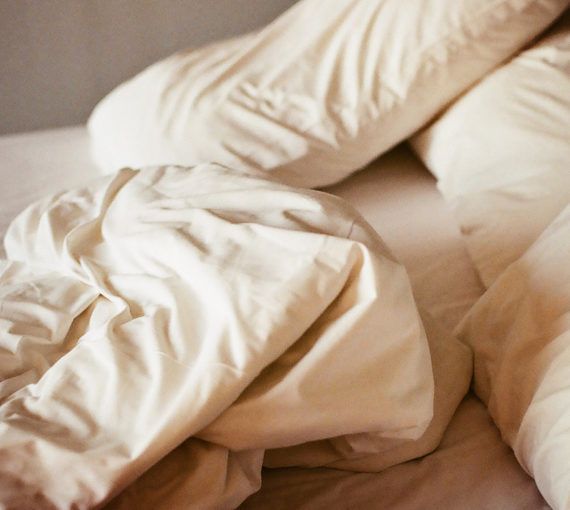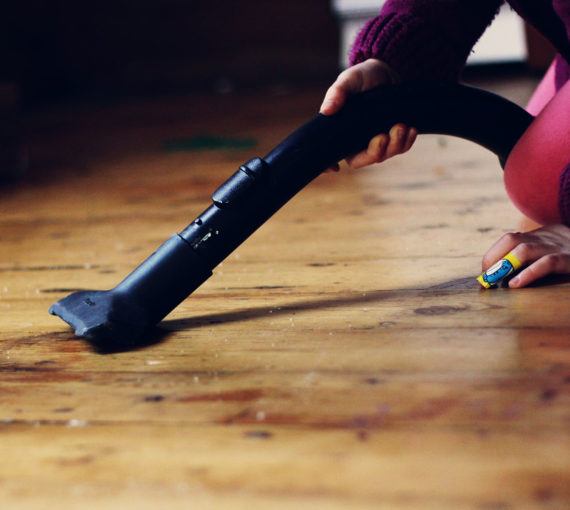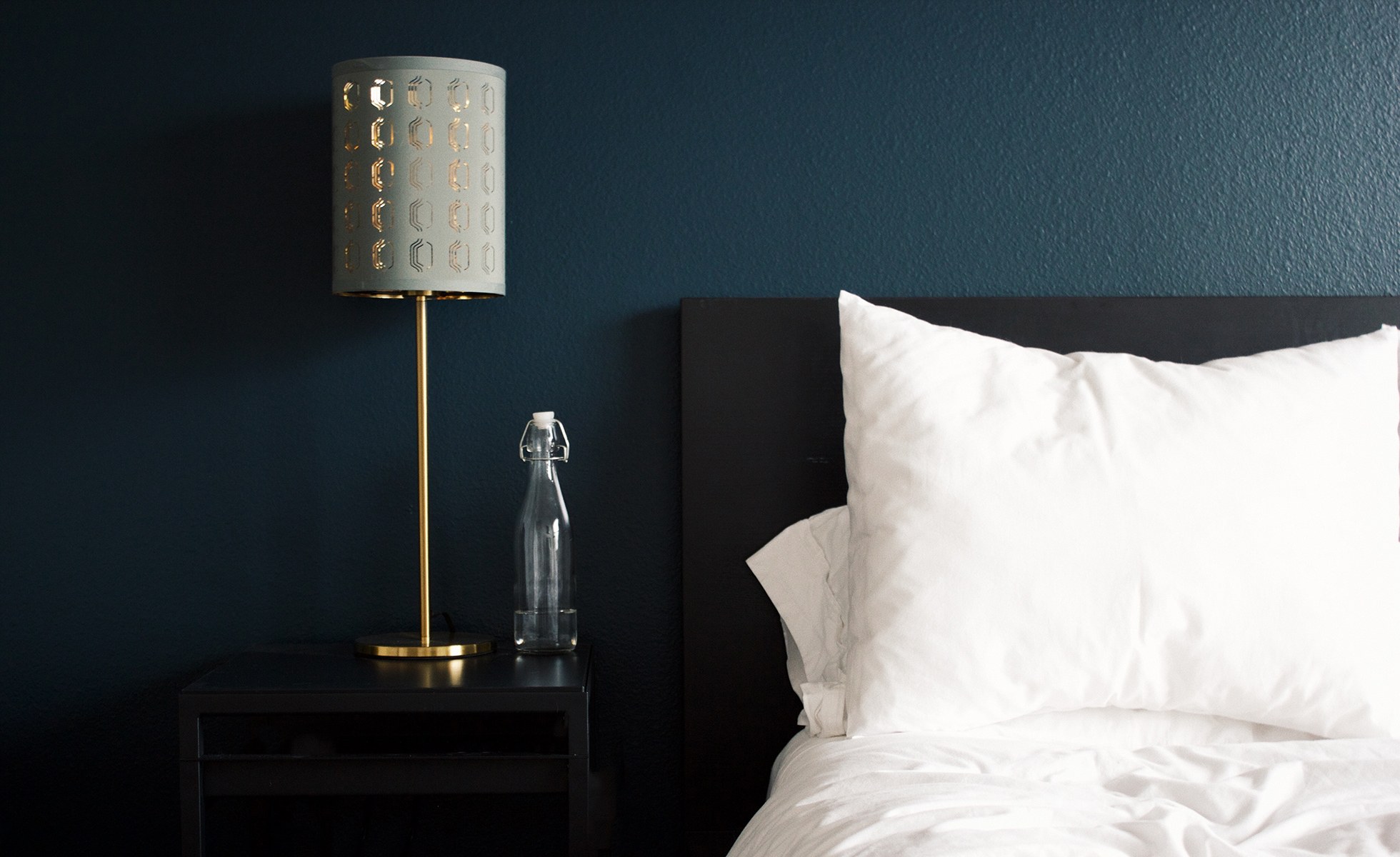
Avoid nightmares about off-gassing volatile organic compounds, fire retardants, antibacterial protection and stain-resistant chemicals and finishes! Choose eco-friendly options.
Unfortunately, many pillows and mattresses are made from synthetic materials like petroleum-based polyester or polyurethane foam.
Avoid nightmares about off-gassing volatile organic compounds, fire retardants, antibacterial protection and stain-resistant chemicals and finishes! Choose eco-friendly options.
To protect your health and the natural world, make consumer choices that:
- Keep toxic chemicals out of our bodies and the air and water.
- Minimize waste and are biodegradable.
- Are better for all life forms, including farm and factory workers and animals.
Watch for eco-labels
- Global Organic Latex Standard: GOLS addresses criteria for natural rubber from certified organic plantations (United States Department of Agriculture National Organic Program or EU). A product must contain more than 95 per cent certified organic raw material.
- Global Organic Textile Standard: GOTS is the worldwide leading textile processing standard for organic fibre certification for wool, kapok and cotton. It prohibits the use of chemicals commonly used in textile processing that can cause cancer, birth defects, and other health concerns.
- OEKO-TEX: OEKO-TEX certifies natural latex. “If a textile article carries the STANDARD 100 label, you can be certain that every component of this article, i.e., every thread, button and other accessories, has been tested for harmful substances and that the article therefore is harmless in human ecological terms.”
- Responsible Down Standard: RDS is a voluntary global standard prohibiting removal of feathers from live birds, force-feeding and much more.
Eco-pillow options
Natural rubber
Renewable and biodegradable, has some weight to it!
Buckwheat
Full of compostable buckwheat hulls! Usually made with a zipper so hulls can be removed to adjust loftiness.
Organic cotton
Many eco-pillows come with organic cotton covers. But some are made from 100 per cent certified organic cotton.
Organic wool
Naturally resistant to dust mites and mildew. Source locally, maybe meet the farmer? The coolest temperature-wise, if you sleep hot! Compostable, with time.
Kapok
Silky threads from the flower seeds of the kapok tree (Ceiba pentandra) can be harvested without chopping down the trees. Firmer than wool or down options. Cruelty- and odor-free. Compostable and biodegradable.
Down
Some down and feathers used to make pillows, comforters and jackets are harvested from live birds and birds that have been force-fed. Some contain feathers sterilized with formaldehyde. Choose “ethical down” or RDS.
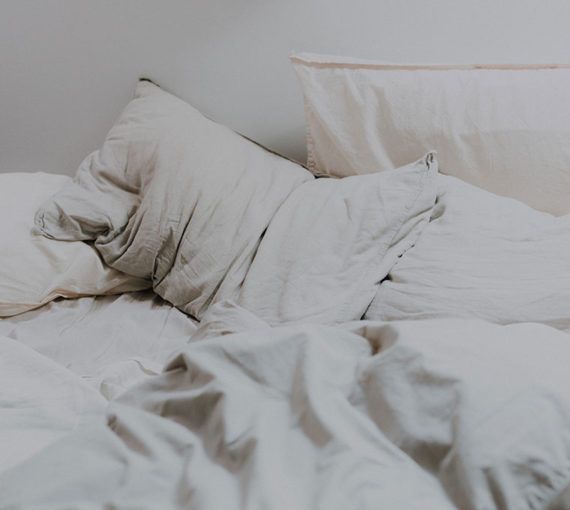
Tip
Spot clean pillows or use your local wet cleaner. Always read product labels. Some pillows use material blends.
Eco-friendly mattresses
Natural fibres — wool, organic cotton, hemp and natural (not synthetic) rubber/latex — are best. Look for eco-labels.
Dust mites and fire resistance
Conventional mattresses tackle these with chemical treatments and toxic compounds. But wool naturally repels dust mites and natural latex foam is fire-resistant.
Polybrominated diphenyl ethers are synthetic chemicals added as fire retardants. They’re not produced in Canada, but manufacturers import them. They’re added to consumer products: electronics, motor vehicles, appliances, furniture and carpet underlay.
Tip: dust to reduce your exposure
Mattresses made in Canada generally do not contain PBDEs, but it’s always good to ask. Also avoid chemicals used to repel stains and water.
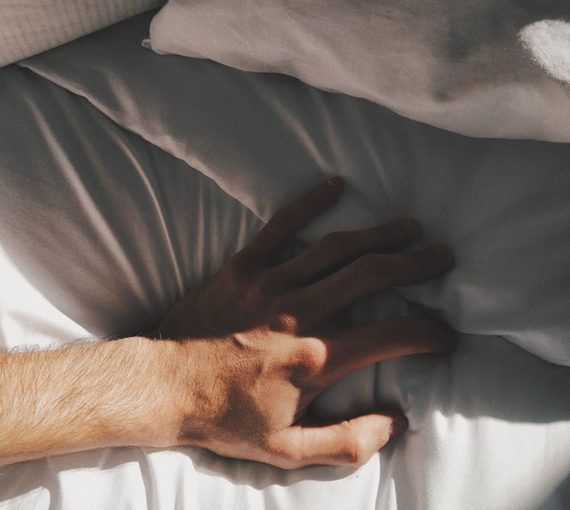
Tip
To create a barrier between you and a polyurethane foam mattress, choose a mattress protector or topper made from wool, organic cotton or natural rubber.
How to recycle your mattress
It’s illegal to dump mattresses in a landfill. Check for a municipal program, private recycler or retailer that breaks them down to be recycled or donates gently used mattresses. Did you know 90 per cent of the materials can be diverted from the waste stream?
A few examples:
- Across the Lower Mainland, Canadian Mattress Recycling picks up mattresses, box springs, head boards and other furniture for a fee. In Vancouver, bring mattresses to the transfer station or landfill to be recycled for a fee.
- Mattress Mart works with Montreal-based recycler MattCanada Environmental and will recycle your mattress where facilities exist if it can’t be donated.
- Mother Earth Recycling is an Indigenous social enterprise and Winnipeg’s first and only mattress recycling option.
- Sleep Country stores across Canada will donate any mattress in good condition to a local charity or recycle it. Ask about their green fee.
- Also for a fee, in Western Canada Mattress Recycling accepts mattresses, box springs, futons, couches, armchairs, child car seats, clothing, shoes, textiles, office chairs and more. See their website for pricing and drop-off depots.
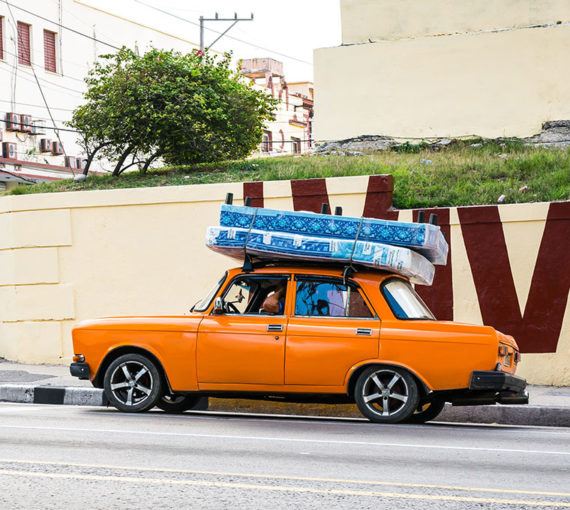
Tip
Before you buy a new eco-mattress, ask the retailer — no matter how big or small — if they’ll recycle your old one.

